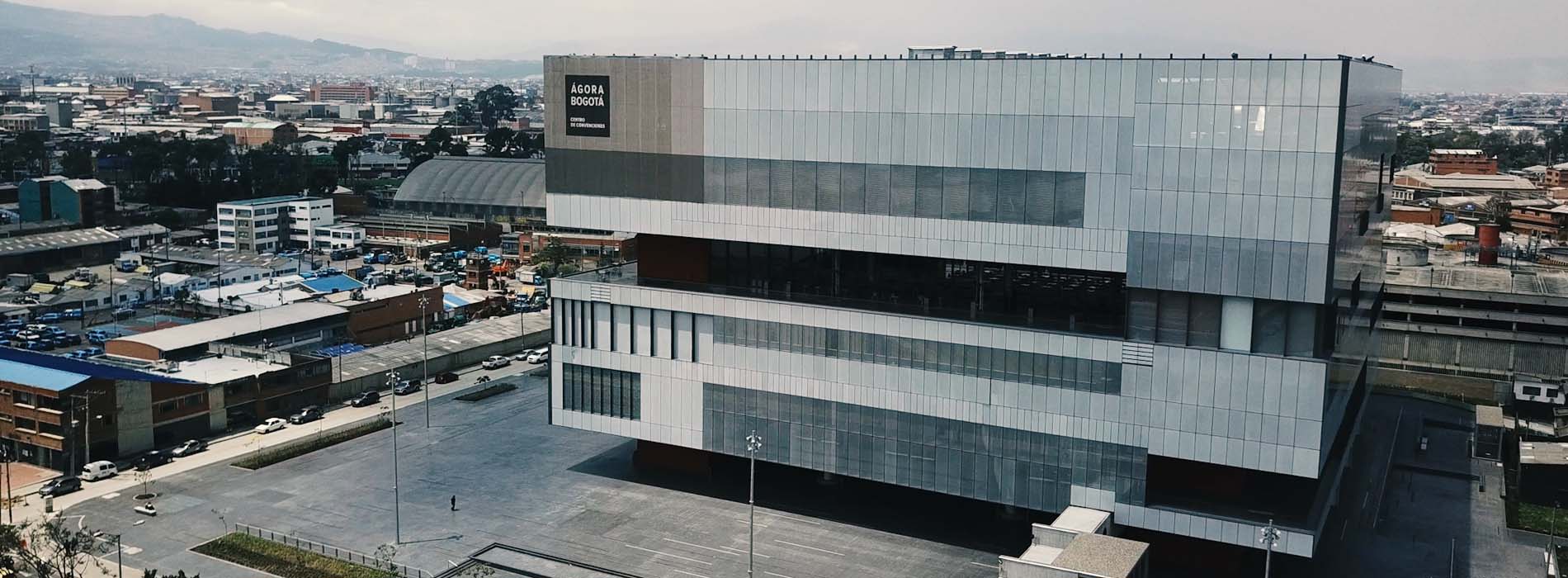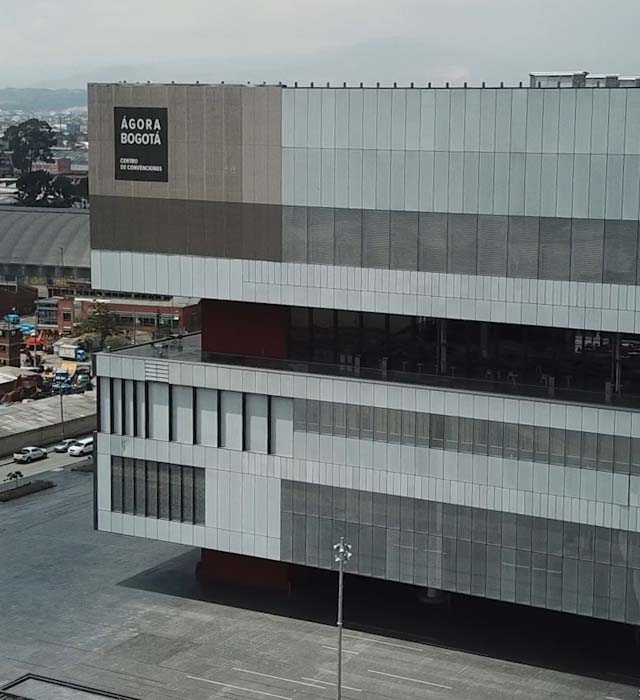



Content publication date
This South American country features 27 convention centers and 455 hotels with custom-designed spaces for events. It’s an attractive meetings tourism destination due to the best practices acquired to become more environmentally sustainable.
The Cartagena de Indias Convention Center, for example, installed a solar panel system in 2010 that now supplies 18% of its current energy consumption. This makes it the first venue in South America to generate clean energy, representing 188.6 fewer tons of CO2 and equivalent to planting more than 31,200 mature trees per year.
Similarly, the Ágora Convention Center in Bogotá, which recently opened its doors, implemented social and environmental sustainability measures in its operations, such as the mass harvesting of rainwater and its subsequent recycling for use in the building, an automated natural ventilation system (to avoid the energy consumption by heaters or air conditioning), and stairs with energy accumulators.
In addition to venues, Colombia now holds the matter of legacy close to its heart. This means not just thinking about how visitors can benefit from a destination, but also what they can contribute to it.
“We are looking to connect event organizers with Colombian social businesses to positively impact a municipality or department. We work to support businesses in the sector, but also our communities. For example, small entrepreneurs can offer their authentic products or services while creating job opportunities or generating income for its population,” stated Flavia Santoro, President of ProColombia, the agency in charge in promoting international tourism in Colombia.
“In addition, we are talking about high-spending travellers. In 2017, the economic impact of tourists coming to Colombia for events and business exceeded 850 million dollars, according to the average spending estimates of the International Congress and Convention Association (ICCA),” she added.
Coffee tastings with handmade products by families in Quindío, dance lessons whose earnings provide education to Colombian teenagers in Chocó, snacks for events that help feed children, or handicraft sales that can be a means of sustenance for entire communities; these are just a few examples of projects that can support the meetings industry while contributing to regional growth.
In 2017, Colombia ranked third in Latin America in ICCA’s rankings, which classified Bogota as the Colombian city that hosted the most events that year, more than Washington, Rio de Janeiro, New York, and Chicago.
Some of the large events hosted by Colombia include the General Assembly of the World Tourism Organization (Medellin, 2015), the World Economic Forum (Medellin, 2016), the World Summit of Nobel Peace Prize Laureates (Bogota, 2017), One Young World (Bogota, 2017), the most important meeting of young leaders in the world, and other sports events, such as Ironman 70.2 (Cartagena, 2016-2017).